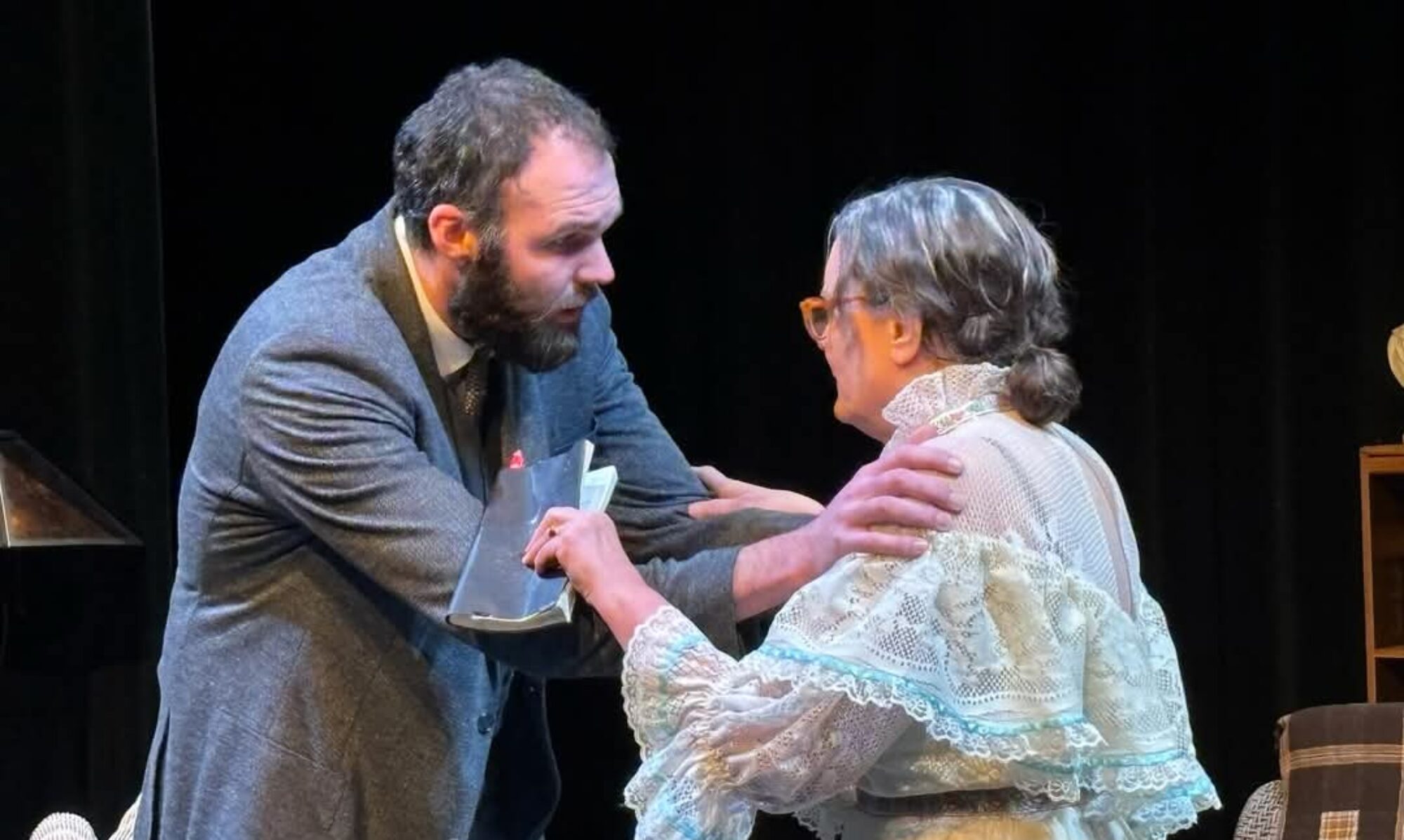We opened our fifteenth season with The Trojan Women by Euripides. I had done the play before. It is, I think, the greatest anti-war play ever written and I don’t think it can be done too often. In fact The Upstart Crow did it again in 2004. The first thing I did, of course, as we do whenever we do a play written in another language, was to find the best translation of the play. I was not looking for the most accurate translation. (I can’t read Greek, so how would I know?) Nor was I looking for the best translation for a reader of the play. I was looking for a translation that best fitted the language the actors would speak from the stage..
The more I read, the more I loved the play, and the more I became frustrated in my search. Good translations for readers existed, of course, or I could never have fallen in love with the play. But I could find no translation that I thought an actor could speak from the stage without sounding foolish, insincere, stilted.
For instance: The play is about the suffering of the women of Troy after it has fallen, and they express that suffering through a fair amount of audible grieving. Virtually all translations express the grief through vocalizations like “woe is me,” “alas,” and “ah, me.” These things will do for a kind of literary stage-direction in a text for the reader, an indication that the speaker is grieving, but they will never do as the actual utterances of people in real grief. I have never heard “ah, me” in real life except as a deliberate jest, an attempt to denigrate or parody grief, and I would never ask an actor to use that expression unless I wanted it to sound like denigration or parody. I do not know exactly what Euripides wrote in these places, but I doubt very much that it was a vowel followed by the first person singular accusative pronoun.
The chorus describes the moment just before the Greek soldiers came out of the Trojan horse and began slaughtering the men of Troy. The most esteemed modern translation, that of Richmond Lattimore, renders it thus:
…and girls’
light feet pulsing the air
in the kind dance measures;
indoors, lights everywhere,
torchflares on black
to forbid sleep’s onset.
This is pretty good, but torchflare is a very literary word, and the last phrase is simply not real human speech. If you ask me about last night I might say something like “Well, I couldn’t sleep,” but I would never say anything remotely like “Something forbade sleep’s onset.” Also I think if dancing feet can pulse the air they must be pretty heavy feet.
Edith Hamilton’s translation is better—
…girls with feet as light as airdancing, sang happy songs.The houses blazed with lightthrough the dark splendor,and sleep was not.
—until that last phrase.
Isabelle and Anthony Raubitschek give us:
the maidenslifted their feet and beat the ground,and sang their tuneful airs.But in the homes, the shining gleamof fire put to sleepthe darkened light of day.
This is more deliberately ‘poetic’ than the others and suffers from the flabbiness that accompanies that sort of thing. Why are we told of a “shining” gleam when there is, really, no other kind of gleam? And isn’t “tuneful airs” a rather roundabout way of saying “songs”? And why “maidens”? Were only virgins permitted to dance? The last phrase here seems to contradict the other translations; where they express a general absence of sleep, this one tells us the night was sleeping (if that’s what “darkened light of day” means).
E.P. Coleridge is more poetic yet, although in prose:
…maidens beat the ground with airy foot, uplifting their gladsome song; and in the halls a blaze of torchlight shed its flickering shadows on sleeping eyes.
Maidens again. “Uplifting their gladsome song” really is, in more senses than one, unspeakable. I suppose I might lift up a song, but I cannot imagine saying: “I uplifted a song.” That sounds like pirating from iTunes.
Philip Vellacott is perhaps the most prosaic, al-though it is printed as verse:
…music of dancing feet;Until through the darkened palaceOne flare still left alightflickered on sleeping faces its dim gleam of fire.
This is a translation I might have used, but it is only nominally verse. It would not lend itself to music, and the choruses were sung, and ought to be sung in modern productions.
So I gave up and made my own. My claims for it are modest. It is certainly not the most accurate, faithful version, for I am not competent to do that. It is certainly not a brilliant modern recreation, for I tried to stick as close to the original as I could, trying to discern the original as best I could through the works of others. All I claim for it is that every line is speakable; that was my guide. I used English verse forms and rhetorical forms, and devices such as rhyme as freely as I used English words and English syntax. Since this is an English version it would seem pointless to render it into non-English hexameters in quantitative verse.
It would be unfair not to quote my versions of the passage I have quoted above. Here it is:
Over the stones the dancers swept,Girls with feet as light as air.Torchlight danced from every doorAnd nobody slept.








